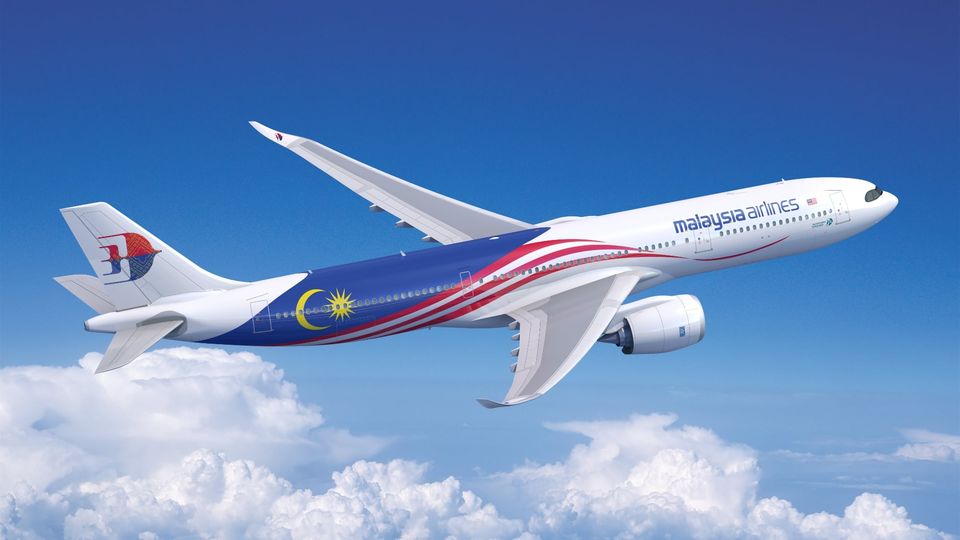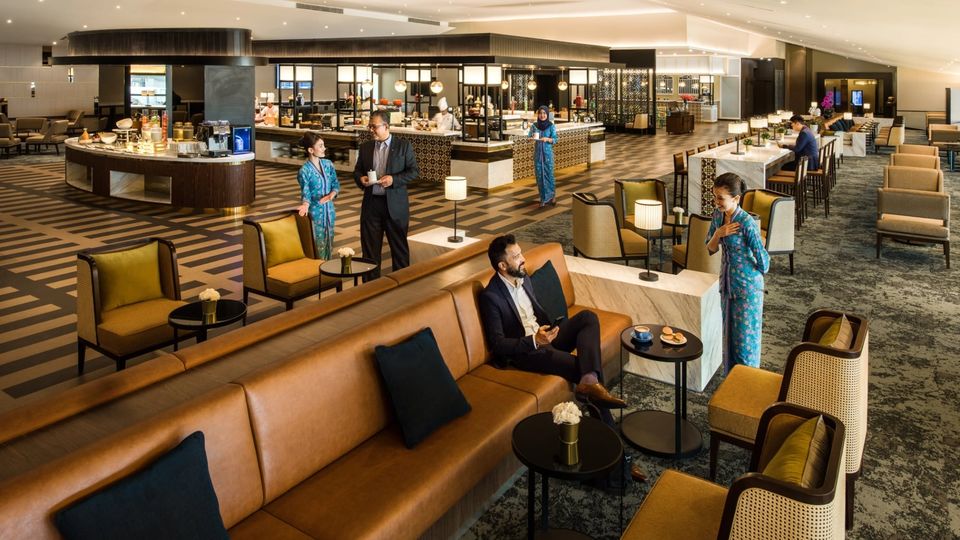[ad_1]
Malaysia Airlines is bumping up its Australian schedule to meet summer demand, with additional flights between Sydney, Melbourne and its KL hub, while Melbourne will also see the return of the Airbus A350 in place of the A330.
However, a Malaysia Airlines spokesperson tells Executive Traveller there’s currently no such A350 swap slated for Sydney.
While the A330 and A350 share the same flatbed business class seats and a handful of solo ‘throne’ seats, the newer A350 makes for a superior travel experience due to its quieter and more modern cabin.

The A350 features the spacious ‘throne’ business class.
Of course, all business class passengers can look forward to Malaysia Airlines’ legendary satay served at 40,000 feet (as many as 26,000 individual satay sticks are prepared each day at Malaysia Airline’s catering facility on the edge of Kuala Lumpur International Airport, alongside 200 litres of that rich peanut sauce).
Melbourne will welcome the A350 on daily flights MH148/MH149 from December 31 2023 through to at least March 30 2024, according to the airline’s timetable.
In addition to the double-daily Sydney-KL and Melbourne-KL flights, the Oneworld member will slot in an extra A330 flight per week for both routes.
Between November 3 and February 3, watch for MH7031 departing Kuala Lumpur at 11.35pm each Friday to reach Sydney at 10.55am the following day; the MH7030 return leg leaves Sydney at 1.10pm each Saturday, touching down in KL at 8.45pm.
Likewise, on every Friday between December 29 and February 2, Melbourne’s twice-daily pairing of MH128/MH129 and MH148/MH149 gains a third flight: MH7041 leaves Kuala Lumpur at 4.45am to reach Melbourne at 3.40pm, then turns around at 5.40pm to become MH7040 back to KL at 10.55pm.

The Airbus A330neo will join the MH fleet from late 2023.
As previously reported, Malaysia Airlines’ workhorse A330s will be replaced by the newer A330neo model from later this year, while short-range Boeing 737 jets are now gaining a fresh look and passenger experience through an upgrade to new business and economy seats.
However, the delivery of the Malaysian flag-carrier’s first Boeing 737 MAX 8 has been pushed back from this coming Monday August 28 to sometime in September.
The Oneworld member has 25 MAX 8 jets arriving through to 2026, which like their standard 737 siblings will cover domestic and regional routes.
By popular demand
Giles Gilbert, Malaysia Airlines’ Regional Manager for Australia and New Zealand says its increases are driven by a steady growth in demand in both directions – “it’s increasing every week” – with the business class cabin now proving especially popular among holiday-makers.
“We’re certainly finding customer demand for a more premium product by people who would’ve normally flown in economy,” Gilbert tells Executive Traveller.
“I think, there’s an expectation that they’re going to make a good holiday out of it.”
This includes onwards journeys to London, Malaysia Airlines’ flagship European destination, with two flights a day on the modern A350s.

Malaysia Airlines’ lounges at KL are now open 24 hours a day.
London calling
At the airline’s Kuala Lumpur hub, both its Golden Lounge and Platinum Lounge are now open around the clock, while newer routes include twice-daily flights to Doha alongside its partner Qatar Airways, plus flights to Tokyo’s downtown Haneda airport alongside the more distant Narita catering for the Japanese market.
Another fresh pin in the map is a direct route between Singapore and Kota Kinabalu, on the island of Borneo, which enjoys close proximity to tropical islands and lush rainforests.
“Overall, we’re certainly seeing some opportunities and taking advantage of them to expand our network.”
That expansion, as well as the relatively fast rebuilding of the 2019 network, has been made easier by the airline’s decision not to put any aircraft into deep storage.
Instead, aircraft “continued to be flown on a rotation basis” Gilbert tells Executive Traveller, “and primarily operating them as cargo flights with few or no passengers on board.”
This decision was informed by the first-hand experience of Group CEO Captain Izham Ismail and “his knowledge of the complexities of returning an aircraft back to service,” Gilbert reveals.
“Hindsight is of course a wonderful thing, and we can see now how other carriers have struggled to get their fleet back into operation, because the engineering time to take an aircraft out of storage is quite considerable, and engineering departments are not usually overstaffed anyway.”
Malaysia Airlines was “very fortunate in that respect,” Gilbert relates, “in that the whole fleet is still operational.”
Gilbert also reports continued engagement with the MHBiz loyalty programs, which cover both self-booking business travellers and companies which rely on appointed third-party travel management agency.
“Certainly in this day and age, businesses are looking to save money; we certainly offer some nice discounts to corporate customers as they travel again, because face-to-face meetings work so much better than Zoom!”
“And one of the nice things about the MHBiz programs is that the discounts can also be used for leisure travel as well,” he adds.
[ad_2]
Source link
